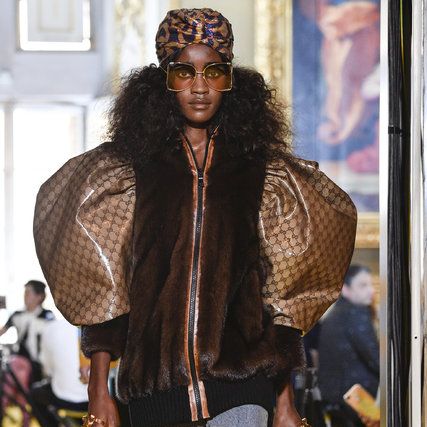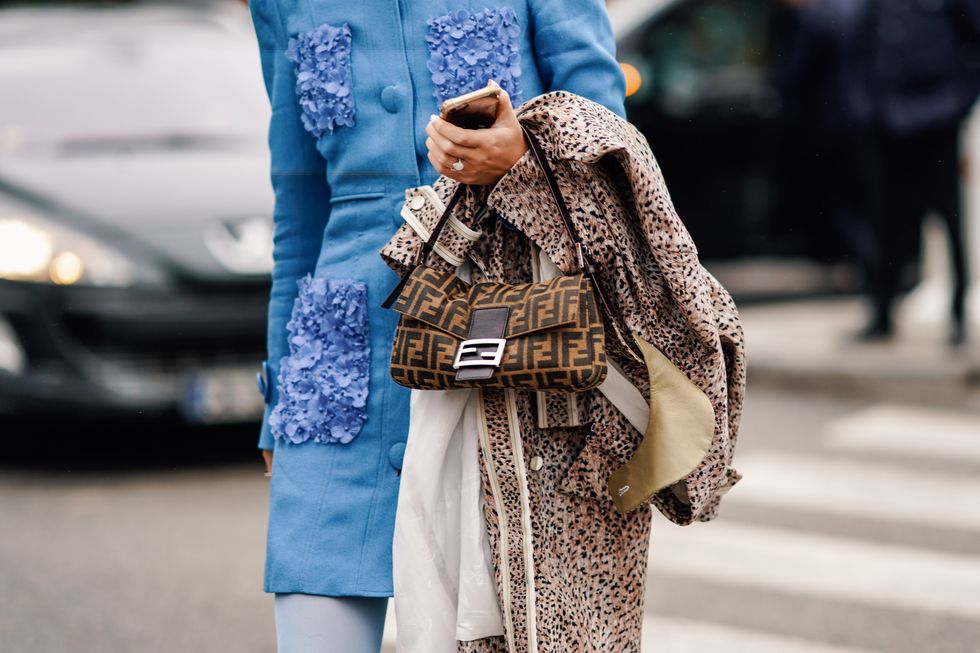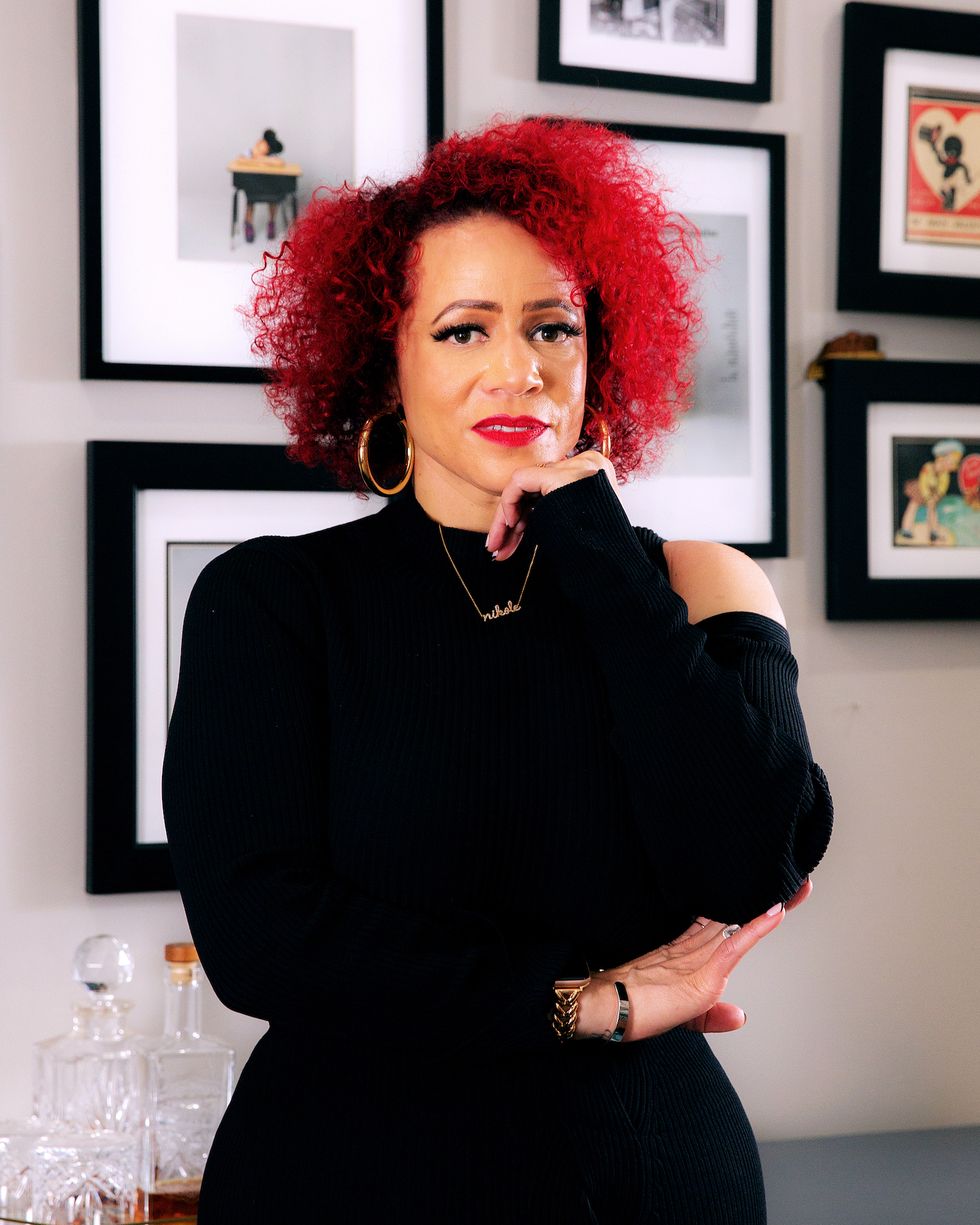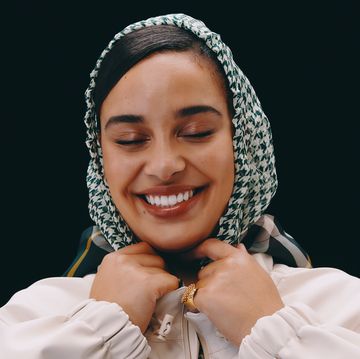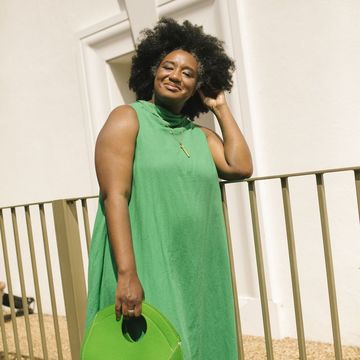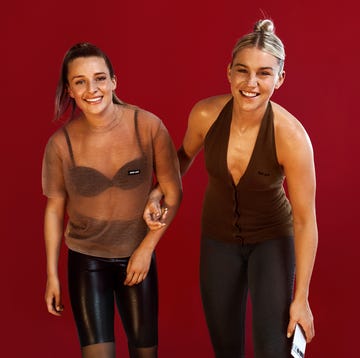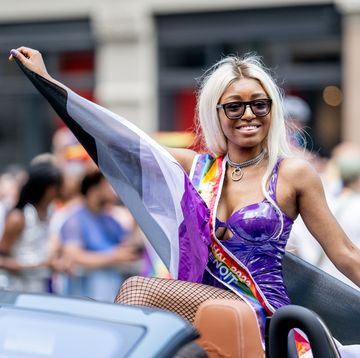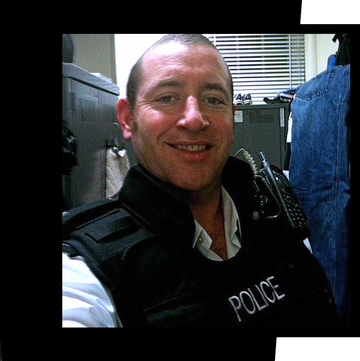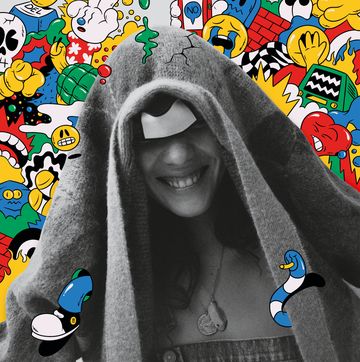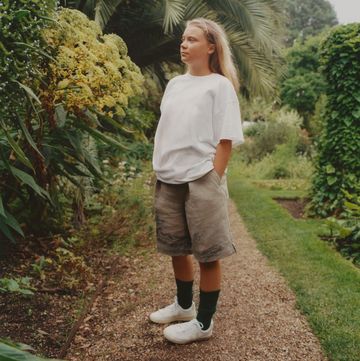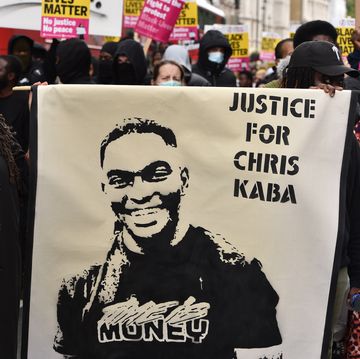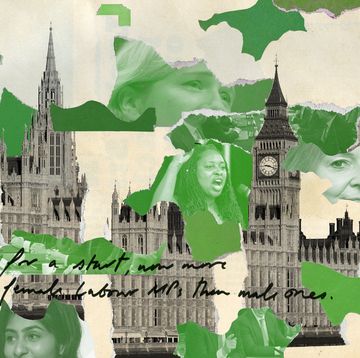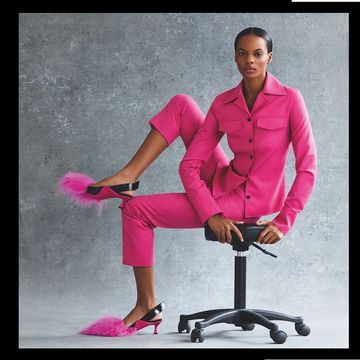I don't make style choices based on the uniform of my profession as a journalist and academic. I'm very aware of what that uniform is: conservative hair style, neutral colours, plain make-up. But I reject it. Fashion can be frivolous, but I don't think that it always is. I think that, particularly if you are a Black woman, or you are a member of a marginalised group, everything about your body is political: your hair, how you dress, what the expectations are. I don't think that's frivolous at all. Beauty and creativity are very important for the world and very important for us as human beings to express our full humanity.
‘Ratchay’ is how I would describe my style, which is to say ratchet and classy at the same time. I was a child of the 90s and so that aesthetic – the big gold door knocker earrings, the really bright colours, the mixing of patterns – influenced how I saw style for myself. I love big, bright, bold, unconventional fashion that takes up space, that doesn't sit quietly in a room but instead screams: ‘I’m here’.
Most important to me as a Black woman, is that my style reflects someone who is liberated. So I wear what I like but also what sends a message that I reject respectability politics: we don't have to wait for white people to legitimise our style in order to flaunt it. I hear all the time from young Black women that seeing how I present with the career that I've had, as a Pulitzer Prize-winning journalist and founder of The 1619 Project, is empowering for them. So when I decide what to wear every day, I'm thinking about all those things. But mostly I just wear what pleases me.
Lately I've been obsessed with Fendi and Gucci because it speaks to everything in me that loves an over the top look that strikes up a conversation. I also try to support Black designers as much as possible, such as Hanifa, Christopher John Rogers, Kai Collective. And I wear a lot of streetwear, such as Jordans, Adidas track suits, Legacy History Pride HBCU hoodies. I also love an outfit from TK Maxx or Nordstrom Rack. But when I'm looking for fashion that influences me, it's really the women and girls I see on the street. I've always loved the style of working-class Black girls; the way that they embrace their vibrant identity and their uniqueness.
Most of the comments I get about my style are about my hair, and that I wear Jordans a lot. I hear from young Black women and girls who say, ‘I just never knew I could wear my hair how I want to and still be taken seriously and achieve success in my profession. And yet here you are with this big red (I don't even know what you even call my hair) a big red poof on your head and you go in a room and you're able to command that room.’ Seeing me on television with my hair the way it is has made them feel like, ‘Oh, I can make this bold hair choice I've always wanted to wear but felt like I couldn't.’
I'm also honest and say that there may be a trade-off: it certainly may make it a little harder for you to be taken seriously in certain spaces. Or it may even hold your career back a little bit if you choose to present the way that you want to. But I have always felt that it's worth it. That if we have to shrink ourselves in order to find success, it's just not going to be worth it.
I've been wearing this red hair for so long that it’s kind of seen as my signature, but people certainly have been surprised when I first started wearing it this bright and they would see my CV and then meet me in person. In their minds these two things didn’t match.
I’ve had times when a supervisor (I am not naming the institution, but it was in a newsroom) has called me in and told me they didn't think my look was professional enough, to which I usually say, ‘Put that in writing.’ The first time I appeared on a national news show in the US, , I wore leopard print nails and a very bold earrings. Shortly afterward, I got an email from a very well-meaning older Black man who said, ‘Sister, you're so articulate, you have such important points, but the way you look on TV is just distracting, and people are going to discount you.' I replied saying, ‘I really appreciate the advice, I appreciate where it's coming from but I know what I'm doing. I'm not up here because I don't know better. I'm choosing to reject the aesthetic that people want to fit us into.’
I don’t tend to dress differently for public-facing events: people who know me know that I look pretty much the same in every room that I’m in. Though, when I gave a speech about reparations before the United Nations last year on the Day of Remembrance of the Slave Trade and its Abolition, I wanted my dress to both honour my style but also reflect the gravitas of the moment. In that instance, I did spend a bit more time thinking about how I could both be myself, and also respect the organisation that I was speaking at. Sometimes, if I don’t wear Jordans on stage, people are disappointed because it’s what they’ve come to expect. But I like surprising people who follow me. When I'm speaking at colleges, I'm thinking a lot about my fashion choices and sending a message to students, particularly young women of colour, about how you can look and embrace your sense of fashion but still get up there and slay everybody with your words.
In relation to my work, particularly on The 1619 Project, Black style really comes out of our unique experience in the US, of a people who enslavers tried to strip down to a basic commodity. You had to wear the same clothes made out of slave cloth, you weren't allowed to have a lot of personal effects. You were treated as a beast of burden, and yet Black people could exercise freedom through their style. You would see them choosing a certain cloth for the headscarf, or a jaunty hat, or trying to turn the uniform of slavery and spice it up with something.
We see that in Black communities now – that vibrant sense of fashion. For Black people, our defiance of convention has been the way that we have used fashion to assert our humanity and our uniqueness, and that's a beautiful thing.
